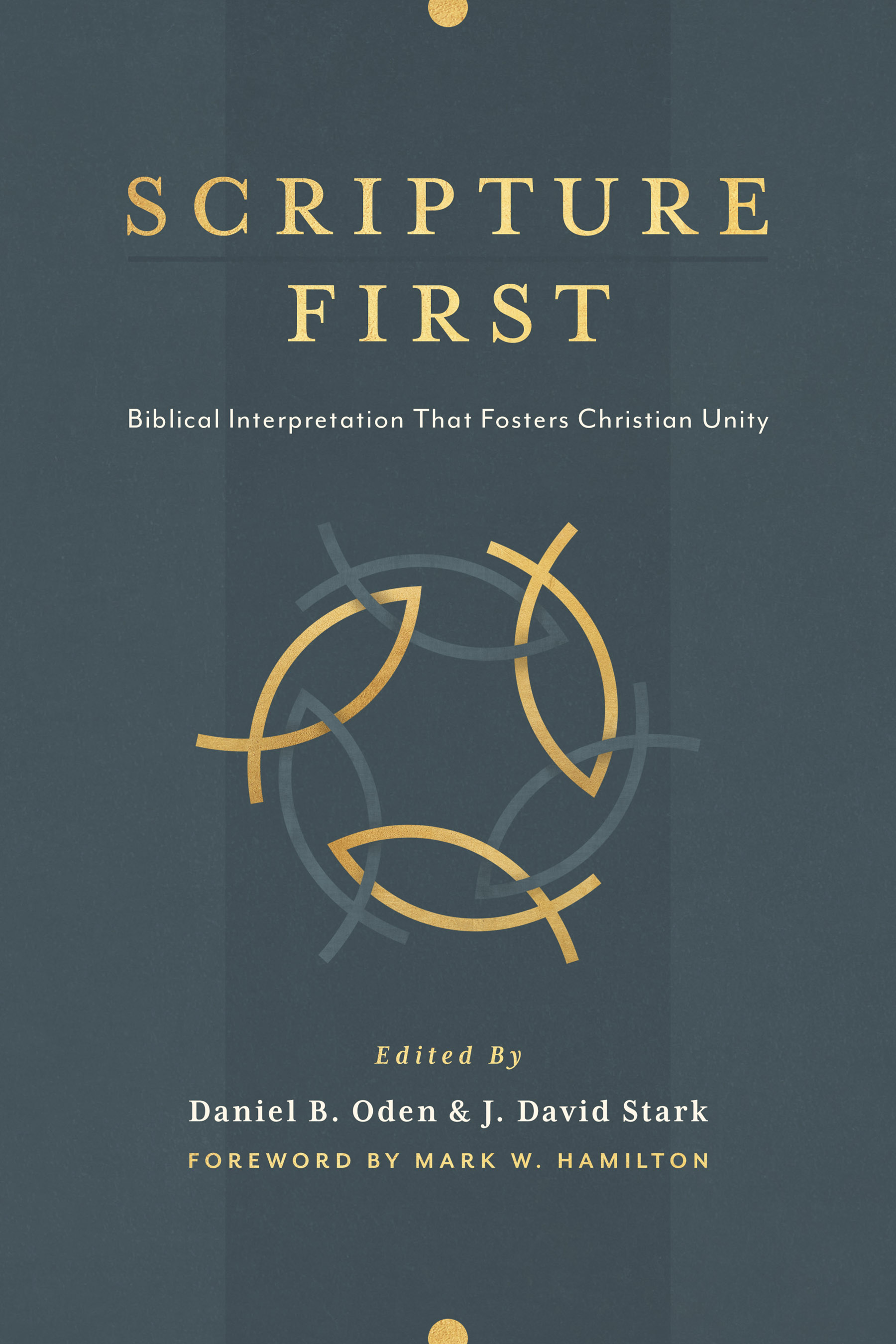The six essays in Scripture First fall naturally into three pairs: two on the biblical text, two on church history, and two on contemporary practice and application.((Header image provided by ACU Press.))

For the church history essays, one of the contributors is Stephen Lawson. Stephen is Assistant Professor of Theology and Dean of Students at Austin Graduate School of Theology.
In the writing process, different things work better for different people. So, Stephen was kind enough to participate in an interview to provide a look behind the scenes of his process for developing his essay.
How did you come up with the idea for what you wanted to argue in your essay?
If I recall correctly, this was the easiest part. Daniel Oden reached out to me and asked me to write something about primitivism. Finding the topic is easy when it’s someone else’s job!
Once he asked me to write about primitivism, I was already fairly clear about what I wanted to argue, since I had been working on the questions surrounding historical methods in theology for several years.
Though my recent research—responses to the development of historical reasoning in theology in post-Enlightenment German thought—seems far from the question of primitivism in American religious history, they are related. What I have learned from studying debates over the use of history in theology has affected the way that I see my own ecclesial tradition.
So, the Scripture First project gave me an opportunity to return to some of the themes that I had been working on already.
Did you divide your process between research and writing? If so, how?
I did not need to do a lot of new research for this essay. Many of the examples that I point to in the essay were things that I had already read. However, I hadn’t done much work on the idea of primitivism itself.
I was helped by two books, both of which were edited by Richard Hughes: The American Quest for the Primitive Church (University of Illinois Press, 1988) and The Primitive Church in the Modern World (University of Illinois Press, 1995).
The essays in these books were helpful in thinking through some of the questions that arose as I composed my own essay. So, I read those two books, glanced through a few dozen relevant articles, and then began writing.
This was a fairly quick essay to draft. I delivered the first version of the essay at the 2018 Christian Scholars’ Conference. Later I expanded it, making it around twice as long.
How did you structure the time you needed to research and write the essay?
I work in big blocks of time, especially when it comes to drafting new material. I can squeeze editing and brainstorming into an otherwise busy day, but I have always needed large blocks of time to write new material.
For me it takes a lot of effort and time to get into the “groove” of composition. It is not something that I can start and stop easily, though I wish it were! As a parent of young children it would be great to be able to produce a few hundred words in a random quarter-hour of free time, but I just can’t.
When working on your essay, what tools did you use?
I use Microsoft Word. I used to use Zotero to manage references, but I fell out of the habit. I was frustrated with the way it handled non-English sources. Friends have told me that there were settings which I was not navigating correctly. They are probably right.
But I’ve not been using any reference software. One of my friends said that because his footnotes weren’t produced by a reference software he was going to start marketing them as “handcrafted” footnotes.
What closing advice would you offer to emerging biblical scholars as they work on papers for academic conferences and collaborative volumes like Scripture First?
Be interested in everything. It’s okay to focus; that’s what scholarship requires. But be open all kinds of things, not just your specialization. So, read widely and charitably.
If you are a biblical scholar, try to keep up with what your theologian and historian friends are up to (and vice versa). If I were only interested in my area of research, I probably wouldn’t have attended the conference session which resulted in my participation in this book.

Scripture First is available directly from the publisher, Amazon, or anywhere books are sold. With your order, you’re also eligible to claim three additional free bonuses.
